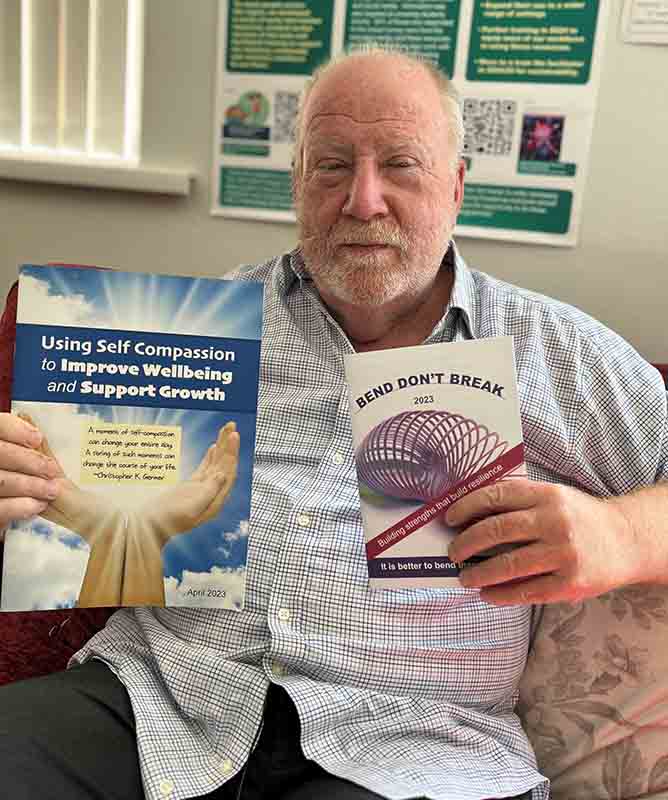Health Specialist sets out toolkit to manage stress in your life
A Health Development Specialist in the South Eastern HSC Trust set out a ‘mindful’ toolkit as part of stress awareness month
“Believe you can do it, have hope and optimism and actively do it.”
These are the thoughts of South Eastern Trust’s Health Development Specialist in Alcohol, Drugs and Behavioural Change, Ed Sipler, as April marks Stress Awareness Month.
Stress Awareness Month is a pivotal time to shine a light on stress, its causes, symptoms and the best practices in trying to manage it.
There are several signs and symptoms of physical and mental strains of stress which include panic attacks, difficulty sleeping, chest pains, being worried or tense.
Ed explained how the feelings associated with stress are not just contained within one month. He said: “Yes, we are looking at stress in a dedicated time for April, but stress really can be an all year round experience.

“Stress is normal. We all have things that hit us out of the blue. Stress is unpredictable and it is part of life.
“It is so important to look at how we look after ourselves when the stress hits. If we are in crisis, how do we prioritise our well- being?”
Ed described how sometimes those who are experiencing symptoms of stress or find themselves in crisis can put off asking for help.
He added: “The question is, why is that the case? For me it is two main things, one is that perception of ‘yeah, I’m ok’ and the other is the availability of resources and support, that is, does that person know where to get help?”
Incorporating movement and physical activity in our daily habits and how we speak to ourselves, can go along way in dealing with symptoms of stress.
“Movement is a way of using our senses to bring in the positive. With stress, how many times do you either dwell on the past or rush way ahead to the future with worst case worries? Your senses will distract the nervous system, what you see, feel, hear, smell or taste.
“What we say to ourselves can be really helpful.
“Resilient people, instead of dwelling on situations in their heads that may make things worse, will tell themselves more positive ‘self-talk’ such as ‘this is temporary, ‘this is going to pass. I can deal with this.”
“What promotes people’s wellbeing and research backs this up. It is called ‘Agency‘, and its when you believe what you do makes a difference.
“Agency as a practice has three parts – one part says you believe you can do it, you have hope and optimism.”
Ed reflected that there is no “one size fits all model” when it comes to how a person deals with their own stress management. “Different things will help different people.
“Many of our techniques and guides are available through the Trust website.
“Ultimately you choose what is going to help you.”
Further support is available at:
Mental Health and Emotional Wellbeing – South Eastern Health & Social Care Trust (hscni.net).
If you are in crisis, Lifeline is available 24/7 on 0800 808 8000.
























